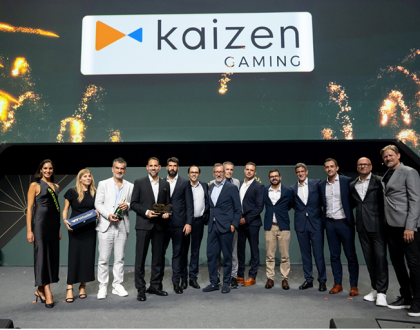Malta’s iGaming Evolution

Many consider Malta to be the epicenter of iGaming in Europe, a reputation earned through a rich and dynamic history in the industry. Over the years, Malta has evolved into a global leader in online gaming regulation and innovation, attracting some of the biggest names in the business.
The Early Days of iGaming in Malta
The Advent of Online Gaming
Before Malta became known as a hub for iGaming, the industry was slowly taking shape in the late 1990s. The visionaries and pioneers who saw the potential of online gaming began setting up their operations on the island.
Legislative Milestones
Any discussion about the early days of iGaming in Malta must touch on the legislative milestones that paved the way for the industry's growth. In 2004, Malta enacted the Remote Gaming Regulations, which set the framework for licensing and regulating online gaming companies.
Understanding the significance of these legislative milestones is crucial in grasping the evolution of iGaming in Malta. The Remote Gaming Regulations not only provided a clear legal framework for operators but also established Malta as a reputable jurisdiction for online gaming. This move attracted many international companies looking to establish a base in Europe.
Establishing the Legal Framework
Some of the key steps in Malta's iGaming evolution include establishing a robust legal framework to regulate the industry. This was crucial in providing a safe and secure environment for operators and players alike.
The Lotteries and Other Games Act
Legal oversight of the iGaming sector in Malta began with the enactment of The Lotteries and Other Games Act in 2001. This legislation laid the foundation for the licensing and regulation of online gaming operators, ensuring that they adhere to strict standards of conduct and player protection. The Act helped to create a framework that promoted fair competition and transparency in the industry.
Creation of the Malta Gaming Authority (MGA)
For the effective implementation and enforcement of iGaming regulations, the Malta Gaming Authority (MGA) was established in 2001. The MGA serves as the regulatory body responsible for issuing licenses, monitoring operations, and ensuring compliance with legal requirements. It plays a key role in safeguarding the integrity of the gaming industry in Malta.
For instance, the MGA has the authority to conduct investigations, impose fines, and revoke licenses in cases of non-compliance. Its stringent regulatory framework has earned Malta a reputation as a global hub for iGaming companies looking for a secure and reputable jurisdiction to operate in.
Malta's iGaming Boom
Attracting International Business
To attract international iGaming companies, Malta offered a solid regulatory framework, a skilled workforce, and a pro-business environment. The Malta Gaming Authority (MGA) was established in 2001 to regulate the industry and ensure fair play. The MGA became a respected authority in the sector, providing a sense of security for operators and players alike. Additionally, Malta's strategic location in the Mediterranean made it a convenient hub for businesses looking to expand into Europe and beyond.
The Role of Tax Incentives and EU Membership
One of the key factors in Malta's iGaming boom was its attractive tax incentives and European Union (EU) membership. Malta's corporate tax rate of 35% was already one of the lowest in Europe, but iGaming companies were offered even more favorable terms. Through a system of tax credits and refunds, iGaming companies could benefit from an effective tax rate as low as 5%. This, coupled with Malta's EU membership, provided companies with access to the EU market and the ability to operate across borders with ease.
Incentives: Malta's tax incentives and EU membership were crucial in attracting international iGaming companies to set up operations on the island. The combination of a low effective tax rate and access to the EU market gave Malta a competitive edge over other jurisdictions. Companies flocked to Malta to take advantage of these incentives, leading to a boom in the iGaming industry and solidifying Malta's reputation as a leading iGaming hub in Europe.
Technological Advancements and Industry Growth
Infrastructure Development
Advancements in technology have played a significant role in the growth and success of Malta's iGaming industry. One key aspect that has contributed to this evolution is the continuous development of the country's infrastructure. Malta has invested heavily in building a robust telecommunications network, reliable internet connectivity, and state-of-the-art data centers to support the increasing demands of the iGaming sector.
These infrastructure improvements have not only attracted major iGaming companies to set up their operations in Malta but have also facilitated the smooth functioning of online gaming platforms, ensuring seamless gameplay experiences for players around the world.
Rise of Mobile and Live Dealer Gaming
To meet the changing preferences of modern players, the iGaming industry in Malta has witnessed a significant shift towards mobile and live dealer gaming. Mobile gaming has become increasingly popular due to its convenience and accessibility, allowing players to enjoy their favorite games on the go. Moreover, the introduction of live dealer games has brought a new level of immersion and interaction to online casinos, bridging the gap between virtual and land-based gaming experiences.
Mobile technology has revolutionized the way people engage with iGaming platforms, offering a wide range of games and betting options at their fingertips. The advent of mobile apps and responsive websites has made it easier for players to access their accounts, make transactions, and participate in live games wherever they are. This shift towards mobile and live dealer gaming has not only expanded the reach of the iGaming industry but has also enhanced the overall gaming experience for players worldwide.
Regulatory Evolution and Player Protection
Unlike many other jurisdictions, Malta recognized the importance of regulating the iGaming industry early on. The Malta Gaming Authority (MGA) was established in 2001 to oversee all forms of gaming in the country, including online gaming. Over the years, Malta has continuously adapted its regulatory framework to keep pace with the rapidly changing iGaming landscape, implementing measures to ensure a safe and fair gaming environment for players.
Implementing Anti-Money Laundering Measures
Measures to combat money laundering in Malta's iGaming sector have been a top priority for the MGA. The authority has implemented stringent guidelines for operators to follow, including thorough due diligence checks on players and reporting suspicious activities. By enforcing these measures, Malta aims to protect the integrity of its gaming industry and prevent illicit activities from taking place.
Ensuring Fair Play and Responsible Gaming
Protection of players is paramount in Malta's iGaming regulatory framework. The MGA requires operators to adhere to strict policies to promote responsible gaming practices and prevent problem gambling. This includes tools for players to set limits on their spending and time spent gaming, as well as resources for seeking help with gambling addiction. Another key aspect of player protection is the enforcement of fair play policies to ensure that all games are conducted ethically and transparently.
Challenges and Controversies
For Malta, as a leading hub for iGaming companies, challenges and controversies have come hand in hand with its rapid growth in the industry. From licensing issues to adapting to international regulatory changes, the island nation has navigated through various obstacles to maintain its position as a top iGaming destination.
Addressing Licensing Issues and Reputation
Addressing licensing issues has been a crucial aspect for Malta's iGaming evolution. The country has faced criticism in the past for its licensing process, with concerns raised about the efficacy of regulatory oversight. In response, the Malta Gaming Authority (MGA) has implemented reforms to strengthen its licensing framework and enhance transparency. By addressing these issues, Malta aims to uphold its reputation as a reliable and trustworthy jurisdiction for iGaming operators.
Adapting to International Regulatory Changes
With the global iGaming landscape constantly evolving, Malta has had to adapt to international regulatory changes to remain competitive. The implementation of new regulations, such as GDPR and AML directives, has presented challenges for operators based in Malta. However, the country has demonstrated its commitment to compliance by updating its legal framework and working closely with industry stakeholders. This proactive approach has positioned Malta as a leader in regulatory compliance within the iGaming sector.
Understanding the nuances of international regulations is important for iGaming companies operating in Malta to ensure continued growth and sustainability in a rapidly changing industry.
The Future of iGaming in Malta
Innovations and Emerging Technologies
All eyes are on Malta as it continues to lead the way in iGaming innovations and emerging technologies. The integration of blockchain technology, artificial intelligence, and virtual reality is revolutionizing the industry. Blockchain technology is enhancing transparency and security in transactions, artificial intelligence is refining player personalization and fraud detection, and virtual reality is elevating the immersive gaming experience to new heights. The future of iGaming in Malta is undoubtedly intertwined with these cutting-edge advancements.
The Role of Malta in the Global iGaming Market
An important player in the global iGaming market, Malta is solidifying its position as a hub for innovation and excellence in the industry. The Malta Gaming Authority's proactive approach in establishing regulatory frameworks and fostering a business-friendly environment has attracted top iGaming companies from around the world. Malta's regulatory expertise and the proactive stance of the government in adapting to market trends make it a key influencer in the global iGaming landscape. Companies established in Malta have access to a skilled workforce, favorable tax incentives, and a robust infrastructure, making it an ideal location for iGaming businesses to thrive.
Conclusion
Taking this into account, it is evident that Malta's iGaming industry has undergone a remarkable evolution over the past few decades. From humble beginnings to becoming one of the world's leading iGaming hubs, Malta has proven itself to be a forward-thinking and innovative jurisdiction that is able to adapt to the changing landscape of the industry. The growth of the sector can be attributed to a combination of factors, including a favorable regulatory environment, a skilled workforce, and a commitment to excellence in online gaming services.
As we look to the future, it is clear that Malta will continue to play a pivotal role in the global iGaming industry. With a strong regulatory framework in place and a reputation for excellence, Malta is well-positioned to continue attracting top iGaming operators and companies from around the world. The island's commitment to innovation and collaboration will ensure that it remains a key player in the industry for years to come.
FAQs
What are the key legislative milestones in Malta's iGaming industry?
Malta's iGaming industry was significantly shaped by the enactment of the Remote Gaming Regulations in 2004, which provided a clear legal framework for online gaming operations. Additionally, The Lotteries and Other Games Act of 2001 laid the groundwork for licensing and regulation.
How did Malta attract international iGaming companies?
Malta attracted international iGaming companies through its favorable tax incentives, including an effective tax rate as low as 5%, and its EU membership, which facilitated cross-border operations. The country also offered a solid regulatory framework and a skilled workforce.
What role does the Malta Gaming Authority (MGA) play in the iGaming sector?
The Malta Gaming Authority (MGA) is responsible for licensing, regulating, and monitoring iGaming operations in Malta. It ensures compliance with legal requirements, conducts investigations, and enforces fair play and responsible gaming policies.
What technological advancements have influenced Malta's iGaming growth?
Technological advancements, including the development of robust telecommunications infrastructure, reliable internet connectivity, and state-of-the-art data centers, have supported the growth of Malta's iGaming industry. Additionally, the rise of mobile and live dealer gaming has significantly impacted the sector.
What are some of the challenges Malta has faced in its iGaming evolution?
Malta has faced challenges related to licensing issues, regulatory compliance, and adapting to international regulatory changes. The Malta Gaming Authority has implemented reforms and updates to address these challenges and maintain the country's reputation as a leading iGaming hub.
Michael
With over 20 years experience in web design, SEO and website promotion I always give you an expert advice in regard to any issues related to your Site Design, SEO, Internet Marketing, Promotion, Backlinks, Site Content. In order to help you find out what is missing or can be improved and get higher rankings in Google and more traffic.
Recommended Posts

Kaizen Gaming’s Success at SBC Awards 2024
October 4, 2024

Sportingtech Boosts Security with Continent 8
October 4, 2024

Hidden Treasures of Rome Slot by Swintt
October 4, 2024



